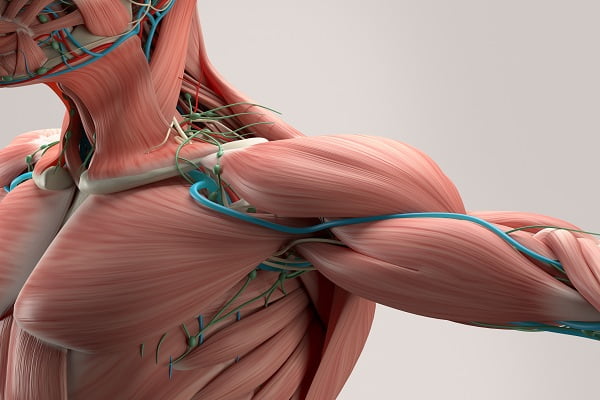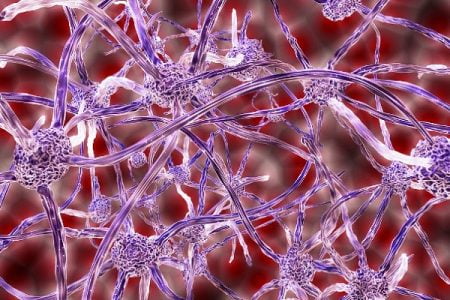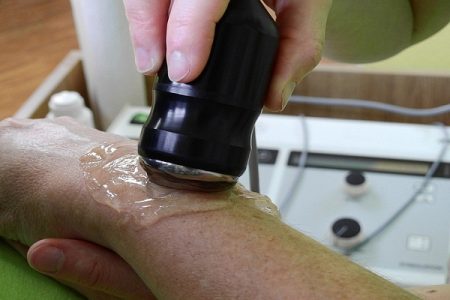Pinched Nerve in Shoulder: Causes, Symptoms, Treatment
- Updated on: Jul 13, 2024
- 5 min Read
- Published on Oct 3, 2019


Pinched Nerve or Compressed Nerve in Shoulder
When the shoulder nerve is pressurized by the surrounding tissue, it leads to the development of a pinched nerve in your shoulder region. It is a temporary condition which causes a lot of pain and discomfort in the shoulder. Compression of nerve in the shoulder region impedes the transmission of signal from your brain to the affected nerves.
Pinched nerve in shoulder is a not a life-threatening condition but it adversely affects the quality of life of an individual.
Signs of Pinched Nerve in Shoulder
The commonly experienced pinched nerve in shoulder symptoms include:
- Tingling sensation in shoulder
- Numbness
- A sharp jabbing pain in one of the shoulder blades
- Some people experience a burning sensation type of pain in shoulder
- Muscle weakness which may range from mild to severe
- Severe shoulder nerve pain while moving the head and neck or while extending the arm
- Pins and needle type sensation in the affected shoulder
Tingling and numbness in the shoulder blade may come and go; but with time, it may become persistent. In severe cases, people may experience muscle weakness due to irritation of muscles near the affected region. Severe nerve compression can lead to constant sensory abnormalities.
If the affected nerve which damages the surrounding muscle is not identified and treated on early basis, it can lead to muscle atrophy and thereby cause a decrease in muscle size and function. Due to high sensitivity, a pinched nerve in shoulder blade can lead to a tingling sensation in your fingers.
Some patients may experience neck pain and pain in the back of their head due to a trapped nerve in their shoulder.
More: Pinched Nerve (Compressed Nerve) Causes, Symptoms, Diagnosis, Treatment, Prevention
More: Pinched Nerve in Neck
Causes of Pinched Nerve in Shoulder
The direct and indirect causes which lead to the occurrence of a trapped nerve in shoulders are as follows:
Carpal Tunnel Syndrome
Carpal tunnel syndrome leads to the development of a pinched nerve in your wrist. This causes pain and weakness in the shoulder of your affected hand. It more commonly occurs in women.
Large Breasts
Large breasts create pressure on your shoulder nerves. Women with large breasts, who tend to maintain an improper posture, can develop a pinched nerve in their shoulders.
Obesity
Excessive weight gain in an individual creates pressure on muscles and nerves present in the shoulder region, and also increases the tendency to develop a pinched nerve in the shoulder.
Pregnancy
Pregnancy creates swelling and pressure on nerves of your body. Due to this, the risk of developing a trapped nerve in shoulder increases.
Rheumatoid Arthritis and Osteoarthritis
Rheumatoid arthritis and osteoarthritis causes damage to the body nerves by creating an extra pressure on them. In rare cases, these medical conditions may lead to the development of pinched nerve in your shoulder.
You can experience the symptoms of a pinched nerve in shoulders due to the occurrence of cervical radiculopathy.
More: Pinched Nerve in Back
More: How to Fix a Pinched Nerve?
Diagnosis of a Trapped Nerve in Shoulder
You can visit a spine specialist, who may carry out a comprehensive exam of your shoulders and neck region. He may identify the affected nerve in your shoulder region based upon the location of the symptoms of your trapped nerve.
The doctor may test your reflexes, sensation and strength of the affected region. He or she may carry out certain stretches or movement of your affected arm to identify the cause and reason for relieving the signs of pinched nerve in shoulder.
The doctor may ask questions about your pain such as how and when it starts and is it caused and how does it subside. He or she may inquire about your exercises or about increased physical activity that you may have performed. He may ask if you have experienced any shoulder injury earlier or have noticed any changes in your bowel habits or bladder function. These can lead to the development of a pinched nerve in shoulder region.
Imaging Tests for Diagnosing Pinched Nerve in Shoulder
If the physical examination is not sufficient, your doctor may perform certain imaging tests such as X-rays and magnetic resonance imaging (MRI).
X-rays help your doctor identify any bone damage in the shoulder region such as the presence of bone spurs or narrowing between the vertebrae etc. It helps identify the cause of a pinched nerve occurrence in shoulder area such as whether the shoulder bones are damaged or affected due to arthritis.
MRI helps in identifying the affected pinched nerve. It represents the exact picture of your nerves and discs. An MRI shows the damaged soft tissue near the shoulder region such as due to damage in tendons or ligaments.
Pinched Nerve in Shoulder Treatment
Your doctor may suggest various treatment options for the trapped nerve in shoulder. They may provide relief from the pinched nerve in shoulder symptoms and also treat the underlying cause of its occurrence. Here are listed some commonly used treatment methods for compressed nerve in shoulder.
Home Remedies for Pinched Nerve in Shoulder Relief
There are several home remedies which are prescribed by a doctor to heal and provide relief from mild trapped nerve symptoms in your shoulder region. These include:
Rest
You should provide complete rest to the compressed nerve in your shoulder. You should avoid movement of the affected region so as to allow the nerve heal faster.
Sleeping Posture
If you suffer from a pinched nerve in shoulder, you shoulder sleep flat on your back. This position helps in relieving pressure on the trapped nerve and allows it to heal faster.
Correct Body Posture
Incorrect body postures can lead to the development of a pinched nerve. Maintaining correct body postures while sitting and standing can be helpful in relieving pressure on shoulder nerves and provide relief from the pinched nerve in your shoulder.
Hot and Cold Compress
You should alternatively apply hot and cold compress on the affected region. You should first apply an ice pack for 15 minutes followed by a heating pad for 15 minutes, three times in a day.
Physiotherapy
Physiotherapy is effective in providing relief from nerve pressure in the shoulder by stretching and lengthening exercises. These exercises provide strength and flexibility to muscles of your neck and shoulder region.
You can also try traction therapy or wear a soft collar around your neck for short stretches of time to provide support to your neck and shoulder region.
Acupuncture
Acupuncture is an ancient science practice which is highly beneficial for pinched nerve patients. It has become extremely common these days.
Medical Treatment: Remedy for Pinched Nerve in Shoulder
In severe cases or if you suffer from severe pinched nerve in shoulder symptoms, your doctor may prescribe a strict medical treatment along with some effective home remedies. These may include:
Medications for trapped nerve in shoulder
Your doctor may prescribe some over-the-counter pain relievers such as Tylenol, ibuprofen, or naproxen. He/she may also prescribe some nerve-specific medications such as Lyrica or Neurontin. Certain muscle relaxants may also be helpful in providing relief.
Injections
In case of severe shoulder nerve pain, cortisone injections may be given by your doctor to provide relief. They help in reducing pain and swelling in the shoulder area.
Surgery for trapped nerve in shoulder
If all medical treatments are ineffective in treating nerve pressure in your shoulder region, your doctor may recommend surgery for its cure. Surgery is the last and most stringent treatment option for a pinched nerve in shoulder.












